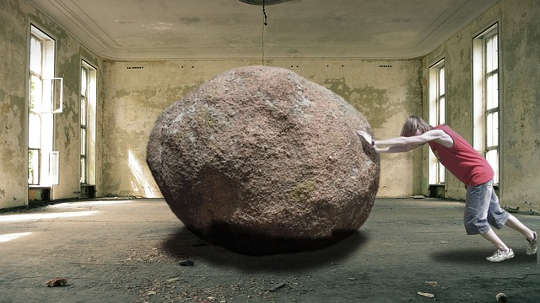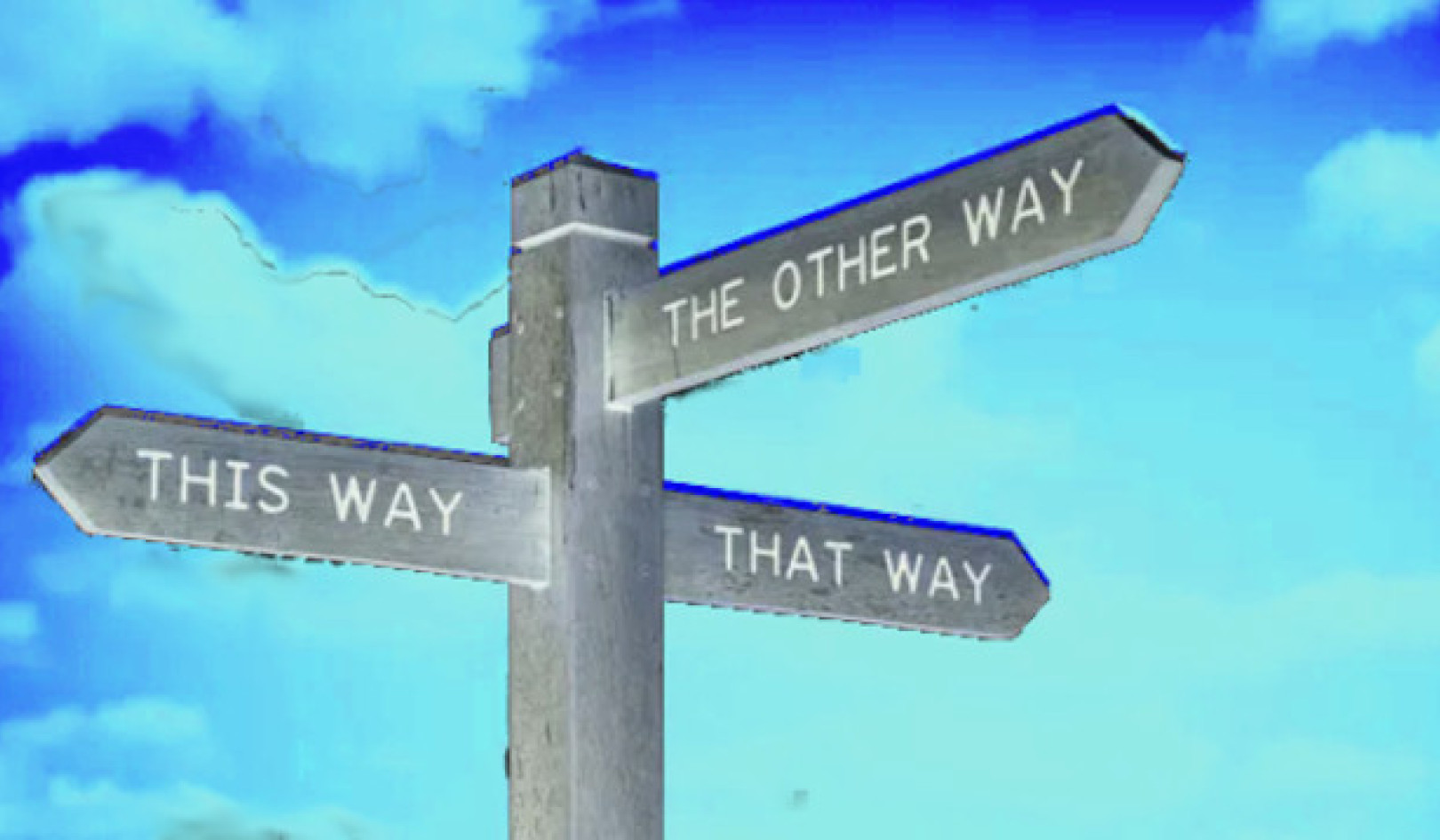
What makes you break your diet, or run up your credit card, or be attracted to all the wrong people? You know these aren’t healthy things to do, you know you’re sabotaging your own best interest, but sometimes you just can’t help it. Sometimes you want what you want and there’s no reasoning with the devil on your shoulder!
Each of us has self-sabotaging tendencies, the origins of which elude us. Be confused no longer! I’m here to tell you that these behaviors are attributable to a part of your personality that perhaps you didn’t even know you had: your Outer Child.
You may already be familiar with the concept of an Inner Child, a psychological construct developed by John Bradshaw, Charles Whitfield, and others. Your Inner Child is your emotional core, the innocent, vulnerable, often needy part of your personality. Many of its feelings emerged at a tender young age and still reside in your psyche; others arise anew from fresh experience. Whatever the origins of its feelings, your Inner Child needs tending to, it needs to be heard, it should be honored.
No less important, your Outer Child is a psychological concept that I have identified to describe the part of your personality that acts out your Inner Child’s feelings in self-defeating ways, without giving you, the Adult in charge, a chance to intervene.
Simply put, your Outer Child is responsible for your misbehavior. Think of your Outer Child as the impulsive and willful adolescent in you: the person who has trouble regulating behavior and resisting primal urges.
Your Outer Child says yes to a third glass of wine when you, the Adult, had already decided on a two-drink limit. Your Outer Child decides to watch the game when you’d resolved to clean out the garage. Your Outer Child wants what it wants and pulls out all the stops to get its own way.
We All Have An Outer Child
As with an Inner Child, we all have an Outer Child; it is not a flaw. It is, however, the obstinate, selfish, self-centered part of us we all share — a part that until now we have failed to recognize as universal. Outer Child is universal because we all have primal feelings we are barely aware of but that drive our most deeply entrenched defense mechanisms and knee-jerk reactions — if we let them.
Your Outer Child manifests outwardly what your Inner Child feels inside. For instance, if your Inner Child’s core fear is abandonment, it is your Outer Child that manifests this fear with all sorts of inappropriate behaviors. When you feel insecure in a romantic relationship, Outer acts out your vulnerable feelings in ways that can only be interpreted as desperate. You might freak out, freeze up, or blow up when your date keeps you waiting more than a few minutes for a call back.
In fact, Outer Child usually has a hair trigger when it comes to abandonment fear — the nerve that jangles so easily when any of us feel slighted, dismissed, or rejected. Hence waiting those few minutes for the phone to ring triggers an overriding fear that you will wind up all alone, bereft of love forever.
Lest you think that I’m giving a name to this part of your personality in order to let us all off the hook for bad behavior, think again! Being able to identify and recognize your Outer Child is an important step toward taming it. I have found with my work in private practice with clients and with countless workshop attendees that being able to separate the personality in this way is the first important step toward controlling your actions and your own emotional destiny.
You Don’t Have To Be That Person
Think of the things you yearn for — to have a happier love life, to break free of debt, to achieve greater recognition in your field — and consider all the impulsive little things you do that actually hinder your progress toward those goals. Your Outer Child represents that hindrance; it’s all the counter-productive habits and tendencies that keep you forever wanting to achieve, but always falling short.
One of Outer’s favorite ploys is procrastination. It creates as much sabotage by what it doesn’t do as by what it does, gumming up the works with indecision and passivity. For instance, it ignores you when you tell it what to do, like “Go to the gym.” Instead Outer just goes right on eating potato chips and lounging in front of the TV. Outer Child is the guy who talks constantly about how he’s going to move to a cattle ranch out west, but never gets around to it.
You don’t have to be that person. You can do something to tip the balance in favor of your Adult Self when those internal power struggles arise.
A Revolutionary Self-Awareness Tool
The concept of the Outer Child is a revolutionary self-awareness tool that lets you look at your own behavior from a powerful new perspective. It reveals the third dimension of your personality: the self-rebellious dimension. In exploring this new dimension, you gain access to a part of yourself that was operating undercover, until now.
I want to reassure you that you can redress and redirect your Outer Child’s subterfuge; it doesn’t have to hold you back any longer. Whether Outer Child has been preventing you from sticking to a diet, curbing your spending, overcoming performance anxiety, ending procrastination, improving a relationship, becoming a better parent, or reaching your potential, you can finally create the change you’ve always dreamed of.
In the interest of full disclosure, it’s important to know that your Outer Child isn’t going to give up its power over you without a fight. Outer Child doggedly fights change — especially change directed at its favorite bad habits. It balks at doing the right thing and hankers after precisely those things that are bad for your health, reputation, marriage, career, figure, or bank account.
That’s because Outer is a glutton for immediate gratification and adept at foiling your best laid self-improvement plans by cleverly substituting self-indulgence for self-nurturance. The difference between the two is vast, but Outer, a master of rationalization, does its best to confuse them.
Self-nurturing is taking action to truly benefit your life. Outer prefers self-indulging, in other words, momentary feel-good things like buying an extravagance on credit, or taking another nap — things that are easy to rationalize in the short run, but sabotage your goals and dreams in the long run.
When Outer Child Takes Control
Outer Child specializes in power and control. Its primary adversary is your Adult Self. When you try to achieve a goal, Outer Child can act like an oppositionally defiant 10-year-old. Outer is bent on wearing you down, on getting you to fall back into one of your old habits, addictions, or compulsions.
Beware: Outer can catch you off guard and take control when you least expect it, especially when you are angry. Outer overreacts to anger. Sometimes it overreacts by underreacting. This is because many people are too insecure to risk expressing direct anger toward someone (like their boss or lover); they fear losing that person’s acceptance. Outer can act out your fear and lack of assertiveness by getting you to take your anger out on yourself. One of my workshop attendees described just such an episode:
The other day when I failed to speak up for myself for the millionth time, I started slamming things around the kitchen. I accidentally broke a dish I really liked. That was my good old Outer Child acting-out in its usual self-destructive way.
In other cases, Outer takes your anger out on innocent bystanders and makes you look like a monster. As one workshop attendee put it, “When my Outer Child is cranky, it tries to bite someone’s head off.”
Outer’s control issues really kick up in relationships: When Outer Child gets into power struggles with other people’s Outer Children, watch out. Outer Children tend to battle one another for control and wrangle over “who’s right.” (If only you could send your respective Outer Children out to play — or to Outer Childcare! — so that the Adults could work things out rationally and fairly.)
Your Outer Child Bullies Your Partner, Other People, and You
Your Outer Child doesn’t just try to bully your partner or other people; it bullies you: When your Adult Self is too weak and your Outer Child is too strong (as it is for many of us), Outer can become so powerful that it completely controls the person.
Some people, like this former client, are almost all Outer Child:
I ate what I wanted, even though I got fat and lost my looks. I drank want I wanted, even after I got arrested a few times for drunk driving. I spent what I wanted, even though I eventually defaulted on my mortgage.
Think of your Outer Child as a horse — an untamed horse — and your Adult Self as a trainer trying to mount it. Sometimes the horse is more determined, more powerful than the trainer and you’re thrown from the horse. Then Outer Child goes galloping off in his own direction.
Outer Child Undercover
Outer’s maneuvers can be subtle. It wears many disguises. It slyly masquerades as free will, while leaving you, the Adult, in shackles. It poses as your ally, but is really distracting you from attending to your true needs.
Think of it this way: Outer is you on autopilot. Its mission — to hijack your Adult Self’s best interests — keeps you forever stuck in old patterns. Outer is always waiting in the wings to spring one of its knee-jerk, defensive strategies, especially when you’re trying to change.
In addressing self-sabotage, many experts focus primarily on symptom relief. But teaching people how to save money or lose weight doesn’t address the powerful component of our personalities that acts out in spite of our best intentions. The advice from personal finance and nutritional experts is valuable; it’s just hard for a lot of us to put their counsel to good use while our Outer Child is in control of driving. That’s why we relapse or substitute one problem so readily for another. For example, we pay off one credit card only to run up another; we give up smoking only to gain 30 pounds.
To extend the metaphor, by learning about your Outer Child, you take yourself off of Outer Child autopilot and switch to manual transmission for a while. In doing so, in taking charge of the wheel, you expose your Outer Child’s true identity. What had been unconscious now becomes conscious. Outer Child’s cover has been blown and you take control of your life’s mission.
©2011, 2015 by Susan Anderson. All Rights Reserved.
Reprinted with permission of the publisher,
New World Library, Novato, CA 94949. newworldlibrary.com.
Article Source
 Taming Your Outer Child: Overcoming Self-Sabotage and Healing from Abandonment
Taming Your Outer Child: Overcoming Self-Sabotage and Healing from Abandonment
by Susan Anderson.
Click here for more info and/or to order this book.
About the Author
 Susan Anderson has devoted more than 30 years of clinical experience and research to helping people overcome abandonment trauma and its aftermath of self sabotaging patterns. Founder of the abandonment recovery movement, she reaches out through her websites, workshops, and media to share her methods of abandonment recovery with abandonment survivors from around the world. Susan is author of four trailblazing books including Journey from Abandonment to Healing and Taming Your Outer Child which guide people through a protocol specific to healing abandonment, heartbreak, and loss. People can contribute to Susan's ongoing research project by submitting (confidentially) your personal stories to her website http://www.abandonment.net/submit-your-personal-abandonment-story. The websites www.abandonment.net and www.outerchild.net reach out with help and information. You are welcome to contact the author directly.
Susan Anderson has devoted more than 30 years of clinical experience and research to helping people overcome abandonment trauma and its aftermath of self sabotaging patterns. Founder of the abandonment recovery movement, she reaches out through her websites, workshops, and media to share her methods of abandonment recovery with abandonment survivors from around the world. Susan is author of four trailblazing books including Journey from Abandonment to Healing and Taming Your Outer Child which guide people through a protocol specific to healing abandonment, heartbreak, and loss. People can contribute to Susan's ongoing research project by submitting (confidentially) your personal stories to her website http://www.abandonment.net/submit-your-personal-abandonment-story. The websites www.abandonment.net and www.outerchild.net reach out with help and information. You are welcome to contact the author directly.
Watch a video: Taming Your Outer Child (with Susan Anderson)



























